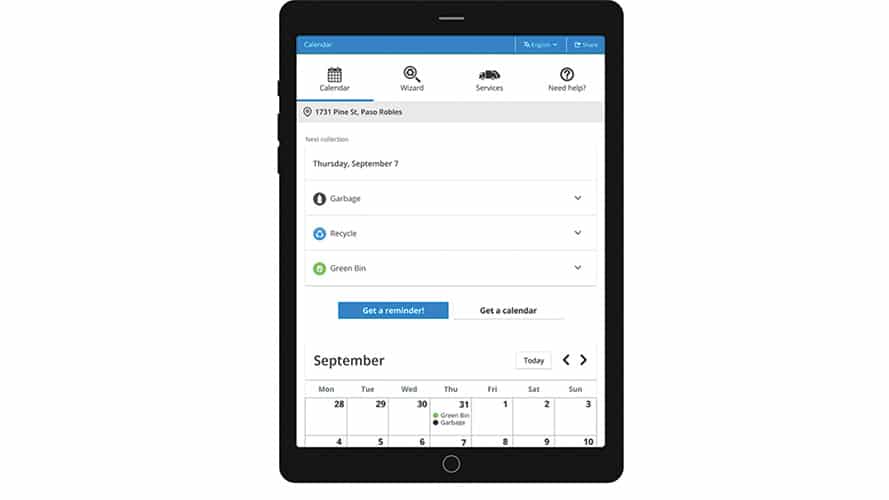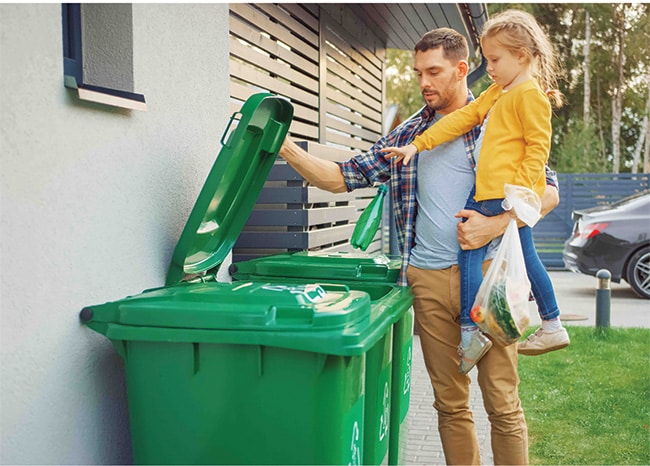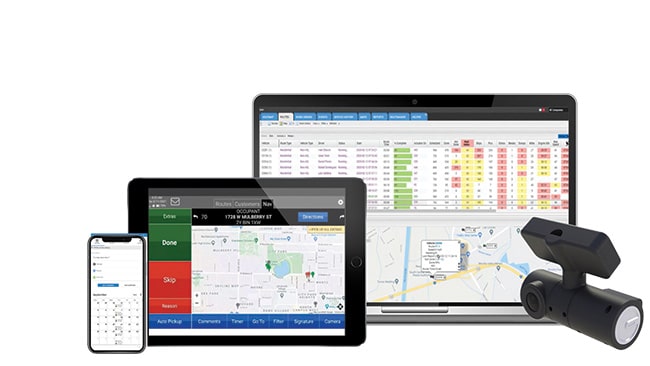Blog
4 Ways Technology Can Help with New Solid Waste Rules
by Aidan McLennan • May 1, 2025

As federal, state, and local laws and codes around solid waste continue to shift, waste management technology will remain key to delivering programs and encouraging both internal and external compliance.
Complying with new solid waste management laws—and implementing new rules at the local level—can be a challenge. Either situation may require individual behavior change as well as updates to collection and recycling software. The good news is that digital technology for solid waste helps in both scenarios, helping your compliance in addition to all the other functions it serves.
When compliance changes come calling, cities and private haulers alike can benefit from considering field-tested recycling management software that has helped other organizations follow current rules, make and enforce new codes of their own, and support clean, beautiful communities along the way.

#1: Photo Finish
As the saying goes, a picture is worth a thousand words. In Waterloo, IA, the ability to take photos at the curb provided the sanitation department the evidence they needed to effectively enforce new rules and fees for solid waste collection.
The city recently undertook a detailed audit of collection carts and services, and they implemented a radio-frequency identification (RFID) enabled cart-tracking system that allows them to appropriately manage city-owned assets and appropriately bill for services rendered.

The city uses a combination of software and hardware inside its trucks. The software “talks to” the back office, providing near-instant updates to frontline staff involved with customer service and billing. When a driver touches a button to snap a photo at the curb using the fleet camera system, it is the evidence they need to enforce the rules and fees that went into effect in August 2022, which include $250 for a first-offense and $500 for subsequent offenses for using the wrong cart, an unregistered cart, the wrong size cart, or for tampering with the RFID tag.
The city also charges a $20 “go back” fee for people who request drivers to return to dump a cart that was blocked, overloaded, or not out on time.
Similarly, the City of Loveland, CO uses photo evidence to enforce a new-in-2020 solid waste management rule that states cart lids must be closed for collection. This allows drivers to bypass overloaded carts, which, in turn, reduces litter and prompts people to pay appropriately for the services they receive. Extra bags of trash may be paid for separately, and people who regularly have too much trash to fit into their cart may opt to pay for a larger or additional one.

#2: Tag Team
Helping people understand the rules of “what goes where” is the reason we have recycling educators: theirs is an important role that, when done right, culminates in proper disposal behaviors, sustainable waste programs, and clean communities. However, recycling educators alone cannot bear the responsibility for the choices people make when standing over their bins—especially when the rules change.
The City of Loveland, CO understands the value of teamwork when it comes to helping people comply with rules about “what goes where.” In fact, when they redesigned their solid waste routes to capture multiple efficiencies, one goal was to give back a little time to drivers for resident recycling communications.
Over time, robust population growth resulted in long collection routes in Loveland—some with as many as 1,600 stops—that caused drivers to hurry, skip preventative maintenance, and forego tagging carts with educational information that helped bolster compliance.
Using route optimization software, the city did a complete reroute, reducing some routes by as much as 30 percent. They now are saving on equipment and maintenance cost—and drivers have the ability to monitor collected materials, tag carts, and answer customer questions along routes, which helps people follow the rules. Through a combination of recycling education and optimized waste routes, drivers are more productive under less stressful circumstances with more support.

#3: Banishing Point
Many states have added or updated rules around solid waste in recent years. Among the states implementing new solid waste management laws is the state of Massachusetts, whose Department of Environmental Protection Waste Disposal Bans went into effect in November 2022 with the goal of reducing landfilled waste by 30 percent over the next decade. Textiles—including mattresses, an important category—were targeted.
The Commonwealth of Massachusetts now bans the disposal—and transport for disposal—of textiles and mattresses in Massachusetts. As is usually the case, municipalities with already-developed channels for solid waste education had an easier time helping people understand and comply with these changes.
Both Cambridge and Lowell, MA had been using digital tools for recycling education before the bans went into effect and were able to use them to teach people new ways for disposing of textiles. In Cambridge, people use a familiar online tool to schedule free mattress and box spring pickup. And in Lowell, they have the City’s online Recyclopedia, which was updated with mattress disposal options following the ban.

#4: Going Home
In 2022, when the City of Weslaco, TX migrated its twice-weekly trash collection program in-house with a fresh six-vehicle fleet, new routes and carts, an updated collection schedule, and a stable of newly minted solid waste drivers, they relied on technology to help make it happen. Drivers needed to understand and comply with new routes, and residents had completely new collection schedules to adopt.
With in-truck technology combined with back-office technology, Weslaco waste management staff was able to develop its new routes and train drivers on them in a way that allowed for transparency and trust. In turn, the new program resulted in happier customers due to enhanced consistency in service and open communication with the city.
The Next Wave in Recycling Management Software
As federal, state, and local laws and codes around solid waste management rules continue to shift, technology will remain key to delivering programs and encouraging both internal and external compliance. Forward-looking municipalities and organizations will adopt new technologies ahead of the curve so that they and the people they serve are ready for the next wave of changes as our industry continues to evolve.
Book your free consultation with us today and learn how we can help you.